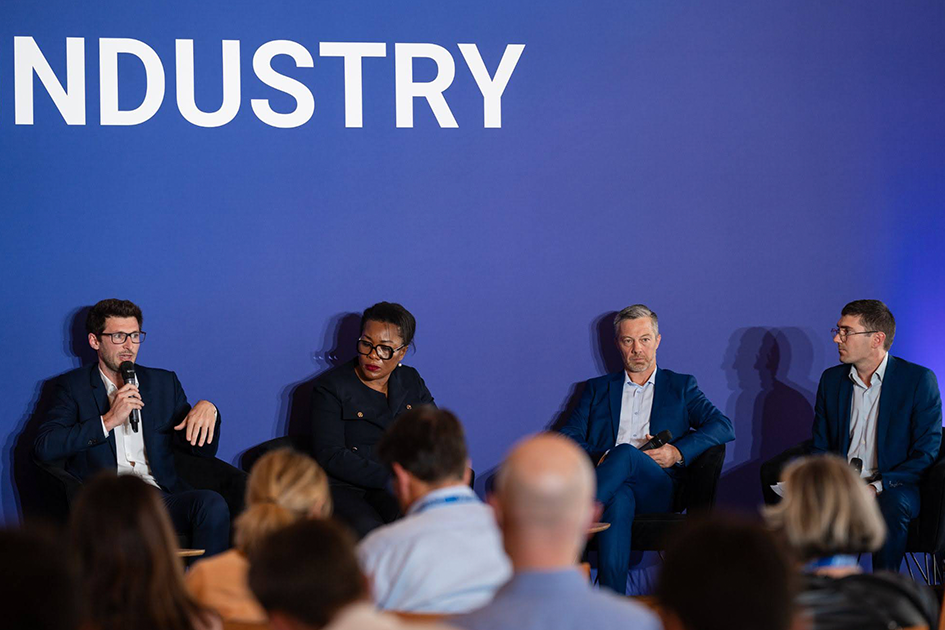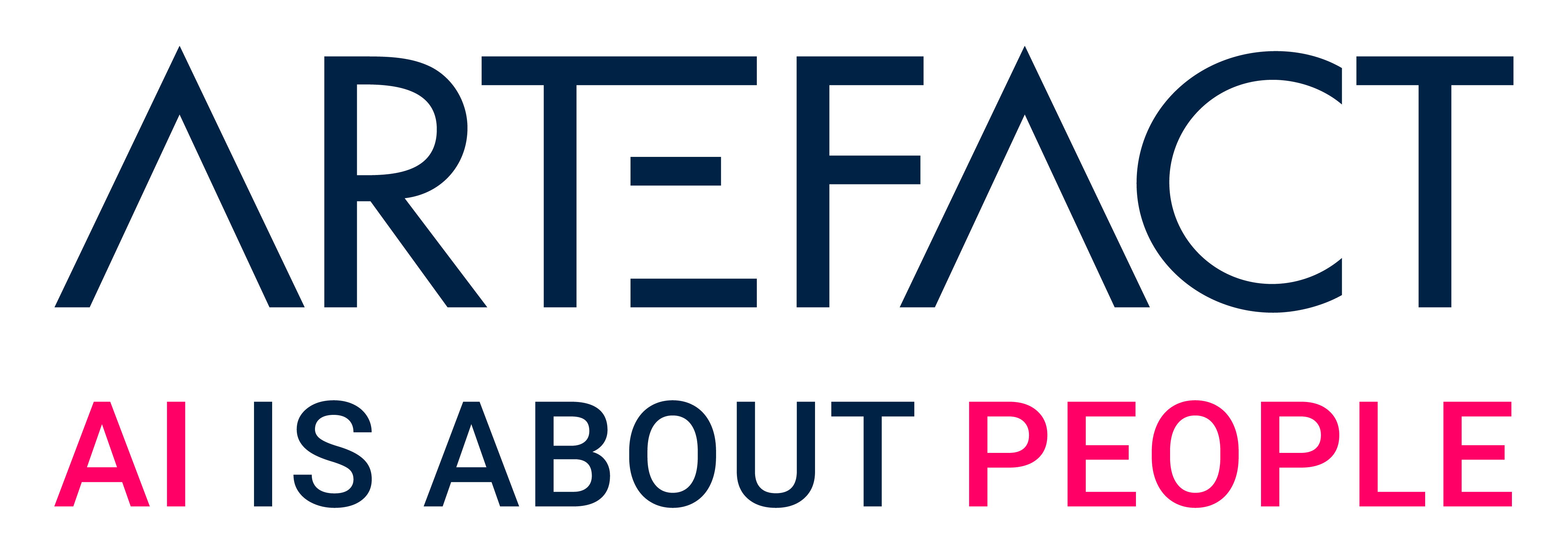AI for Industry Summit by Artefact - September 17th, 2024 - Paris
Key learnings from the panel discussion with Sébastien Rousset, Chief AI Officer at Naval Group, Alice Memang, Co-founder & COO at Delfox for Autonomy, Mikael Volut, Founder of ÆGIR, and Timothée Moulinier, Research and Development, Innovation and Digital Delegate at Gican.
AI for operational superiority at Delfox
Alice Memang explained their focus on developing AI for autonomous systems, using deep reinforcement learning. Delfox creates realistic simulations where AI learns to handle complex missions. The goal is to provide military operators with AI-generated strategies for drones and other systems, while ensuring human approval of final decisions. Delfox’s AI aims to bridge the gap between simulation and real-world conditions, giving military forces a strategic edge.
Naval Group’s use of AI in ship design and maintenance
Sébastien Rousset highlighted how AI optimizes warship design and maintenance. During the design phase, AI helps route pipes and cables for better upgradeability and efficiency. Naval Group also uses AI to analyze past projects and integrate lessons learned into future designs. In maintenance, AI enables predictive actions, reducing unplanned downtime and extending the life of equipment. AI is essential in managing complex shipyards, where numerous trades work simultaneously, ensuring safety and smooth operations.
AI in battlefield decision-making
AI is critical in combat situations where Naval Group’s ships collect thousands of data points. AI processes this vast information in real time, assisting operators in making quick, informed decisions. As unmanned systems become more integrated into naval operations, AI will be key in managing the overwhelming volume of battlefield data and ensuring operational superiority.
Aegir’s AI for decision-making and maritime safety
Mikael Volut from Aegir discussed how AI improves civilian maritime operations. Their solutions focus on reducing CO2 emissions, optimizing route planning, and enhancing safety for large vessels. AI analyzes data from multiple sensors and helps operators make better decisions. Aegir also develops autonomous maritime systems, ensuring that AI can coordinate multiple robots and systems in complex missions, reducing human error and improving efficiency.
Human-AI collaboration and trust
A recurring theme was the need for explainability in AI. Alice Memang emphasized that operators must trust AI decisions, especially in critical military contexts. Delfox works to make their AI explainable, allowing operators to understand how decisions are made. Similarly, Sébastien Rousset noted the importance of designing AI solutions with user needs in mind, using multidisciplinary teams to ensure AI is both effective and trusted by end-users.
AI deployment in the maritime industry
Mikael Volut noted that the civilian maritime sector is slower to adopt AI than the military. However, there is growing momentum. Aegir introduces explainable AI models first, gradually moving toward more powerful black-box models as users gain confidence. The initial focus is on decision support, with the long-term goal of achieving full autonomy in operations.
Collaboration across the industry
The session closed with a discussion on the importance of industry-wide collaboration in AI adoption. Timothée Moulinier stressed the need for a coordinated effort to integrate AI across the entire lifecycle of ships, from construction to deployment. With rising competition globally, particularly from Asia, French companies must adopt AI to maintain an edge in maritime operations.

 BLOG
BLOG



